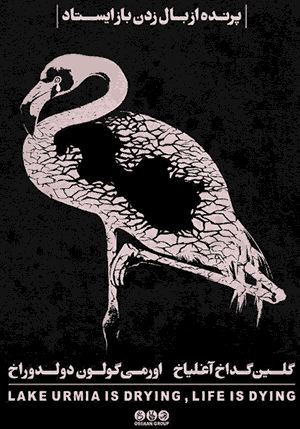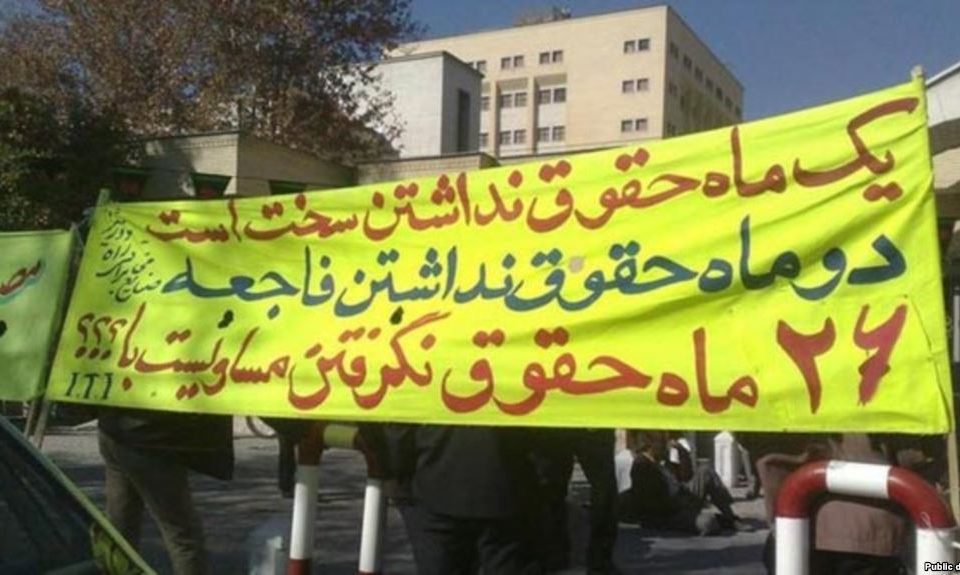
Protests in Iran spurred by Disappearing Lake
September 5, 2011
Was Your Gmail Account Safe?
September 7, 2011The Small Media Foundation has published the report, Cultural Censorship in Iran: Iranian Culture in a State of Emergency (pdf). This report looks at government pressure on and censorship of publishing, music, theater, and film, demonstrating an increase since the disputed 2009 presidential elections.
The findings of the authors, Mostafa Khalaji, Bronwen Robertson, and Maryam Aghdami, show the efforts of the regime to make the barriers towards public culture even higher by pulling previously approved books off the shelves, controlling funding and licenses for films, denying musicians and theater groups access to their audience, and other acts of suppression. In the introduction to the report, the director of the foundation, Mahmood Enayat writes:
This report, which focuses on the censorship of literature, music, cinema and theatre in the Islamic Republic of Iran, is our attempt to capture and describe the restrictive forces that have been increasingly exerting their weight on these cultural spaces since the disputed presidential election of 2009, with a particular focus on the winter of 2010.
The publishing industry has been especially hard hit. The independent writer’s organization, The Forum of Iranian Writers, is being supplanted by the deceptively named, Pen Association of Iran, a government-sponsored organization. The regime financially supports like-minded authors and publishers and purchases mass quantities of their books. In that way they can claim that the number of books published remains high. Bookstores are being shut down at an alarming rate.
While Iranian cinema continues to garner audiences both inside (via bootleg copies, in many cases) and outside Iran, the industry within the country is in a shambles. The acclaimed filmmaker Jafar Panahi remains in prison, others have stopped making films or are doing so abroad, others find their work “stolen” from them and repurposed to tell the regime’s stories. At this past year’s film festival, many in the industry used the opportunity to declaim the current situation. From the report:
When Hamed Behdad, who had been awarded the Crystal Simorgh for best supporting actor for his role in Masoud Kimiaee’s Jorm (Crime), went on to the stage to receive his prize, he spoke of his wish for “only a little bit more happiness and freedom.” And during the inaugural ceremonies of the festival, in the presence of the Minister of Culture and Islamic Guidance, Masoud Kimiaee called for the sentence of Jafar Panahi to be reviewed. This led to conservatives directing personal attacks towards Kimiaee.
Theater troupes found it difficult to perform even the classics of the theater, such as Henrik Ibsen’s Hedda Gabler. One theater director described the process he had to go before getting approval for a public showing:
“In just one of our pre-performance reviews we received a list of 41 amendments that we had to make before being reconsidered … We had to remove a female character from the play. The authorities said she was objectionable because she owned a coffee shop and had a flirtatious personality.”
This important and comprehensive report on the state of the arts in Iran provides valuable insight and confirms trends seen in other civil society sectors. The report shows the regime’s efforts to control all aspects of independent civil society, from the music citizens listen to, to the films they watch.
Small Media Foundation is a UK-registered non-profit organisation that aims to increase the flow of information in closed societies by conducting research, providing training and supporting the development of technology solutions.





